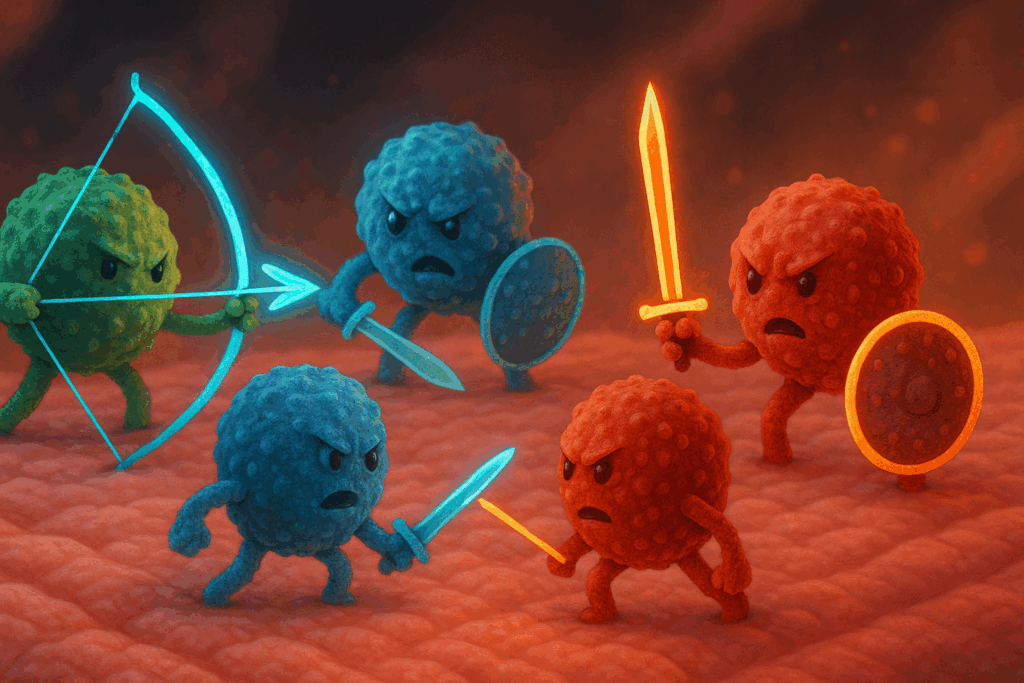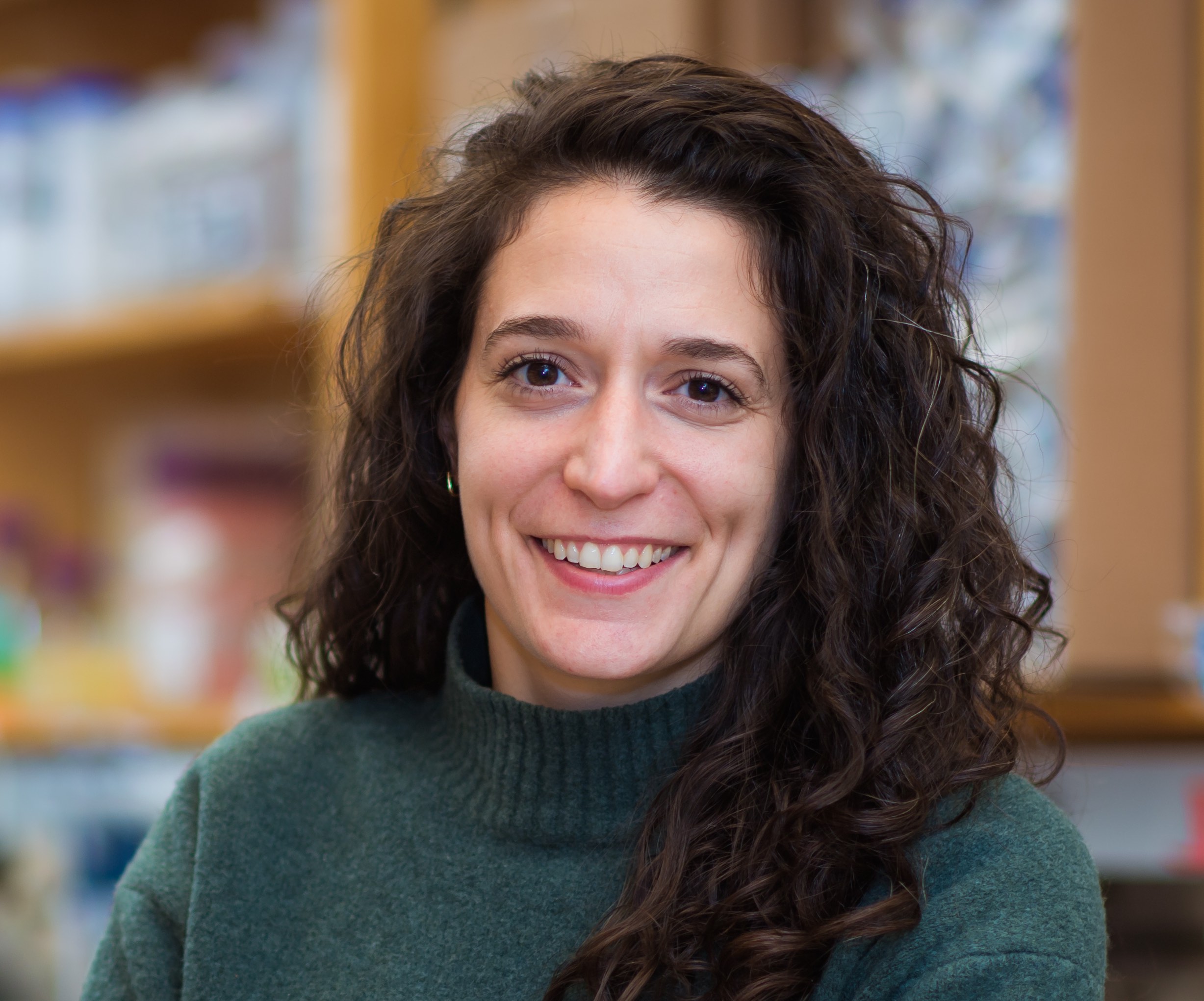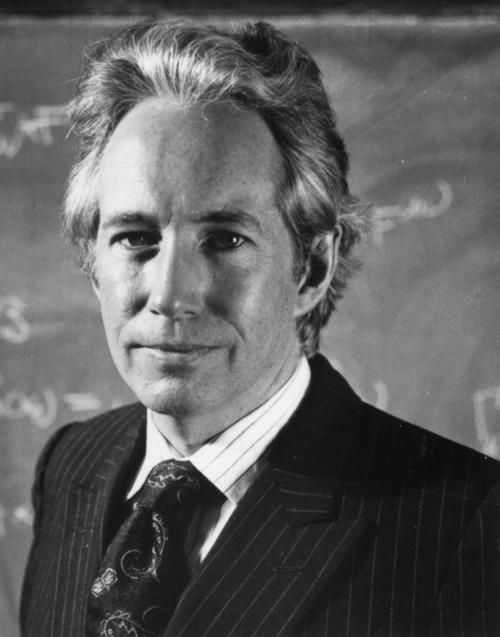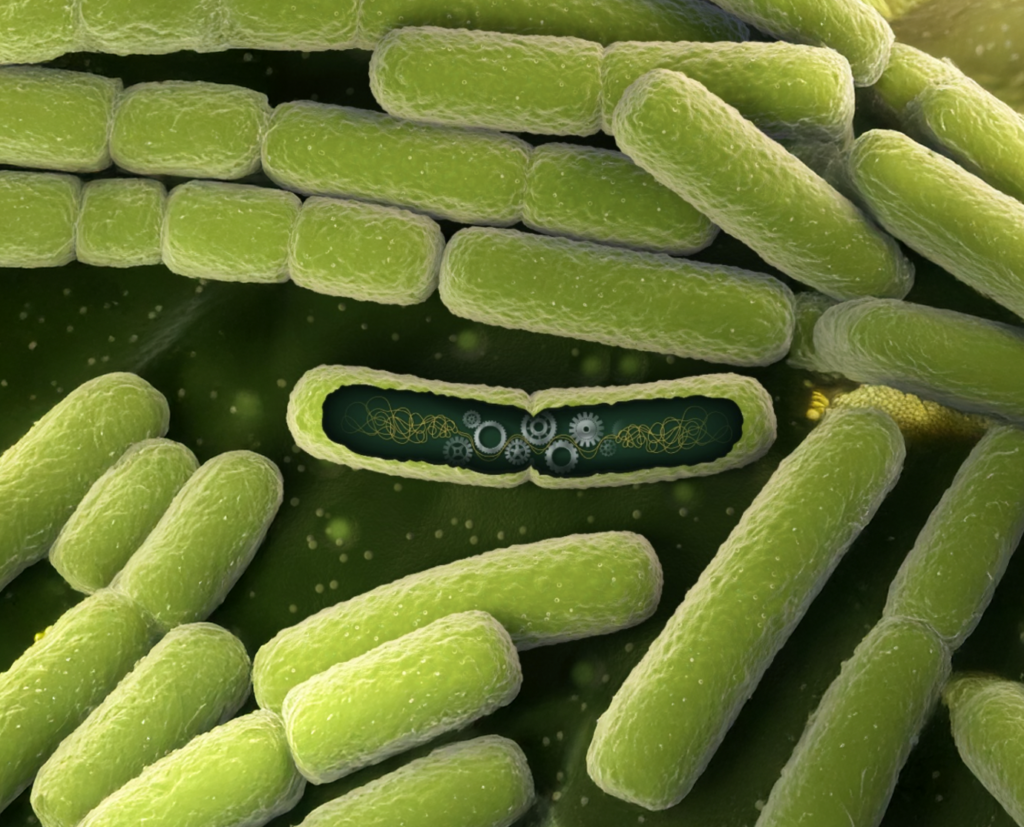

Public Lecture
How Bacteria Wage War to Survive in Your Microbiome
Tami Lieberman
MIT
Wed, Jul 16, 5:30–6:30pm
Ten trillion bacteria live in and on each of us during health – making up what scientists call human microbiomes. These bacteria are critical to our health: they protect us from infection, help us digest our food, and regulate our immune systems. A new era of human health and treatment could be unlocked if we could manipulate these hidden communities in precise ways. Our ability to reach this future is currently limited by our understanding of how microbiomes form and evolve: even identical twins and spouses have distinct microbiomes—and the basis for this individuality is unclear.
In this talk, Professor Lieberman will discuss how her lab at MIT is studying human microbiome ecology, starting with the skin microbiome. She will present evidence that competition among bacteria for the territory of your skin, driven by antimicrobial weapons, plays a critical role in determining microbiome membership. These results have implications for the design of future microbiome and probiotic therapies, which should consider bacterial warfare to have the highest chance of durable treatment.

About Tami Lieberman
Tami Lieberman is an Associate Professor at MIT with dual appointments in the Department of Civil and Environmental Engineering and the Institute for Medical Engineering and Science. She earned her B.A. in Molecular Biology and Genetics from Northwestern University, her Ph.D. in Systems Biology from Harvard University, and completed postdoctoral training in Eric Alm's lab at MIT before joining the faculty in January 2018. NIH Director's New Innovator Award, which supports unusually innovative research from early career investigators.
Professor Lieberman’s lab studies microbial evolution in real time, with a focus on mutations occurring within individual human microbiomes. Her lab seeks to understand how individual bacterial species and strains behave in the human microbiome, including the selective pressures they face and their survival strategies. The Lieberman Lab uses human skin as a primary model ecosystem and leverages evolutionary inference to build principles for precisely engineering microbiomes. Her work has important implications for developing personalized microbiome therapies and next-generation probiotics.
Heinz R. Pagels Public Lecture Series
Heinz R Pagels was a professor of physics at Rockefeller University, president of the New York Academy of Science, a trustee of the Aspen Institute, and a member of the Aspen Center for Physics for twenty years, serving as a participant, officer, and trustee. He was also President of the International League for Human Rights. His work on chaos theory inspired the character of Ian Malcolm in the Jurassic Park book and movies. A part-time local resident, Professor Pagels died here in a mountaineering accident in 1988. His family and friends instituted the lecture series in his honor because he devoted a substantial part of his life to effective public dissemination of scientific knowledge.



